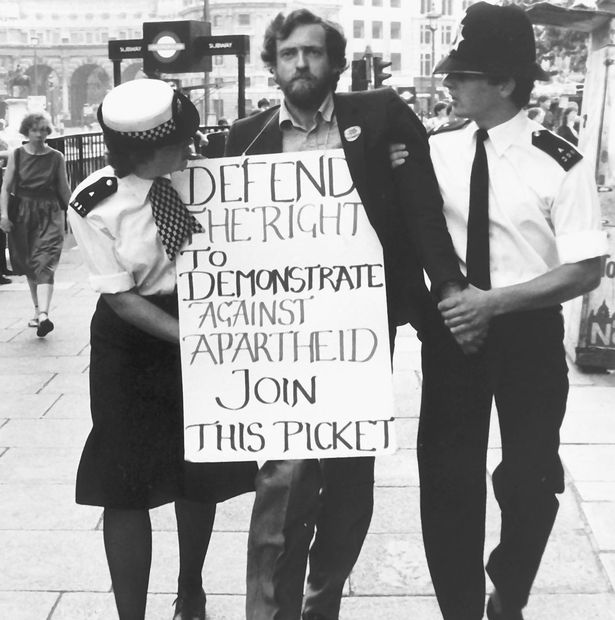Joe Dunne, BA International Relation
The roar audible from Labour Party HQ when Jeremy Corbyn was announced as the party’s 25th leader was typical of the reception with which the news has been greeted at the grass roots of the party across the country. Such a reaction invariably draws comparisons with the frosty reception that greeted the socialist MP for Islington North from his parliamentary party contingent and the spate of high profile Labour MPs refusing a role in Corbyn’s shadow cabinet on the basis of political principle. Yet these are the very MPs he will be leading in opposition and while Corbyn tries to unite the impoverished and denigrated of modern Britain, those embodying the ghost of Blairite politics and Miliband’s wishy-washy centrism are hell-bent on ripping his party open.
With the Americanisation of our electoral campaigning and the increased weight placed on the superficial attributes of party leaders, the requirement to maintain a unified opposition is paramount both for electoral success and for the sake of democratic scrutiny; as surely the party in question should concern itself with eyeballing government legislation rather than fighting civil wars. Many on the left believe this obligation for unity in opposition needs to extend to all parties sitting opposed to the Tories in the Commons, and primarily the SNP, a party that will be at once, gleeful at Labour’s lurch to the left and wary at the potential for Corbyn’s platform to co-opt, and thus dull, the sting of their own anti-austerity message. Labour need no reminding of the detrimental impact that perceived party disunity can have on electoral success, as popular impressions of Miliband’s strength as a leader dwindled with reports of front-bench rebellion in the February of this year. Nonetheless, Corbyn has wasted no time in attempting to re-energise the grass root movements of the left as exemplified by his speech to the TUC, a piece of oratory which could have been delivered to the seething proletariat of mainland Europe in 1848. Similarly the revamped website smacks of an anti-authoritarian movement with allusions to the party’s birth over 100 years ago, as does the choice of questions for his first PMQs including those on affordable housing and the slashing of tax credits and mental health care, pooled from over 40,000 public submissions. Corbyn’s credentials as a Labour leader for the working people have already been firmly established. However, this seems part of the problem for the Labour right.
Both the right, centre and the man himself know that Corbyn’s Labour cannot win in 2020 without these first two factions of the party. The litany of Labour heavyweights aligned to said factions who have shunned a position in Corbyn’s shadow cabinet has swollen to a sizeable number. Cooper, Umunna, Hunt, Kendall, Reed and Flint’s decisions to sulk in the formative weeks of the Corbyn era would not have dealt a severe blow to the new Labour leader. Any move to include the dissidents in his shadow cabinet would have likely been a superficial demonstration of unity, particularly given that continuity in this cabinet is well addressed with the appointments of Benn in the foreign office, Powell in the education department and Watson as his deputy. One must query the authenticity of those who chose to not follow Burnham’s admirable example in accepting a post in the shadow cabinet. Whilst they may cite principle as the cause for their refusal, they know the voice of the centre and right will be heard louder from within than from the outside. Hence, their true intention must rather be to snipe at the new Labour leadership from the backbenches, not bound by the doctrine of collective responsibility. The logical conclusion to draw from this is that they do not mean to head into the 2020 election with Mr. Corbyn as their leader and thus, disregard the 251,417 Labour party supporters who voted for him. The right know they have the numbers to force a vote of no confidence against Corbyn. While the firebrand socialist may not accept that he is merely a caretaker before a candidate with a stronger parliamentary base, such as Umunna or Hunt, takes over, the right may. History has shown us that this never works. Ask Michael Howard.
But here is the crux of the issue; any move made against Corbyn will be taken very badly by the left. Those disillusioned by the Blair, Brown and Miliband years will not forgive the Labour party if it hatches a Macbethian plot against the new leader and this fracture could cause an irreversible schism in the party. While this may sound fanciful, Tim Farron has claimed that a number of Labour MPs have contacted him with the view to defect or rebel. This may be a headline-grabbing move by the increasingly anonymous Liberal Democrats but it may also be a good barometer of the mood in the Labour Party. Even Blair knew that a Labour leader can’t win a general election without the left; hence, the introduction of the minimum wage to placate the working class and the passing of the Human Rights Act to mollify the liberal wing of the party. Blair did a far better balancing act than Miliband, who succeeded stupendously in alienating, not unifying, both wings of the party with his lack of conviction. The only chance that Labour has of beating the Tories in 2020 is with unity across the left-right spectrum. Thus, it’s high time that the Labour centre and right pick up the toys that they’ve thrown out the pram and join Corbyn in mounting an opposition to this Conservative government.
